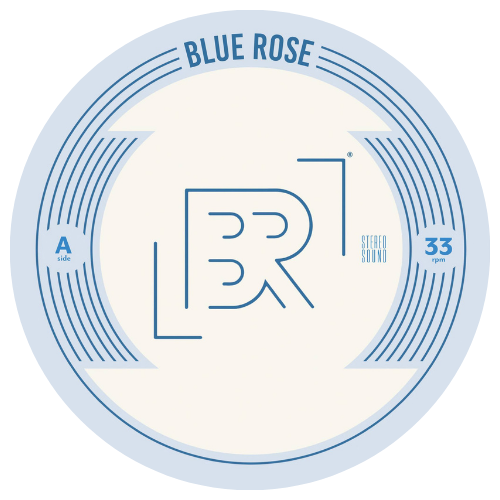
On The String: Shannon McNally Asks, And Answers, What Would Waylon Do?
Share
Her speaking voice is like a low, purring viola, rich with overtones and rosin, made even more magnetic by a relaxed Southern drawl, picked up one suspects after she left her hometown of Hempstead, NY. Since then, Shannon McNally has been a traveler, a troubadour, a student, a visionary and a collaborator. Now she’s an interpreter, lending that gamine voice to the music of one of the most masculine figures in country music history, Waylon Jennings.
Tersely called The Waylon Sessions, the May 28-released album was made in Nashville with a top-shelf band led by guitarist Kenny Vaughan but steered very much by McNally herself. She’s covered Waylon songs before, but when asked how the new focused project came to pass, McNally needs to look back across a theme in her 20-year career. “The people in charge have told me I was too something. I was too country. I was too rock. I was too girl. I was too pretty. I wasn't sexy enough. Always too something, which is an exhausting pattern that I lived with a long time.”
Moving to Nashville four years ago changed that, she says in Episode 173 of The String. The town’s robust support for Americana validated the hybrid take on roots music she’s pursued from Los Angeles to Mississippi to New Orleans and on to Music City. And she gained a first-hand feeling for the potential that the broad musical talent pool here represented. One night, she sang some covers at a benefit show at the invitation of bandleader and drummer Jerry Pentecost. And she said it opened up some channels.
“They played classic country with subtlety and self-control and attention to tone. And they really knew their instruments,” McNally says. “I went, Oh, man, that was that was hip. I like that. And all of a sudden, I just felt free. Like I could do whatever I wanted to hear. And nobody can tell me I'm too country. All the chains were lifted. And I went, well these guys could play anything. These guys could even play...Waylon Jennings.”
She grew up loving the iconic outlaw, who died in 2002, the same year McNally’s first album was released. In any event, the concept is compatible with the extensive work Shannon has done over the years with male roots stars who were ten or twenty years older. She bonded with legendary Los Angles drummer Jim Keltner after she insisted he play on her Capitol Records debut (that gem of a story is in our conversation). She recorded with Dr. John when he brought her into a tribute album to Bobby Charles. She’s longtime friends with Texas maestros Terry Allen and Rodney Crowell, who produced her fine Black Irish album. And there are connections as well to California great Dave Alvin and the late Jim Dickenson. It’s as if the elders of roots music have grasped something about McNally’s honest and moving voice that the establishment hasn’t caught up to.
Nashville may have provided some of the institutional support McNally’s lacked since being strung along and inhibited by that early major label deal. Compass Records made cause with her for Black Irish and released The Waylon Sessions as well. And that’s in tune, because Compass is headquartered in the building off Music Row once known as Hillbilly Central where Waylon Jennings had his office for years.
More validation of her direction came from Waylon’s widow Jessi Colter. Twelve of the 13 songs written by, recorded by or inspired by Waylon were for McNally’s voice alone. But she left room on the track “Out Among The Stars,” a deep cut from 1979’s What Goes Around Comes Around. Once she felt like she’d achieved the tone and level she’d aimed for, McNally sent the record to Colter, who liked it. “And it was kind of a no brainer to ask her to sing on it,” Shannon says. “And I was really thrilled of course when she said yes. And then she sounds like Mother Teresa, you know, singing. She really is a patron saint of wayward sons.”
While McNally covers “I’ve Always Been Crazy,” “Only Daddy That’ll Walk The Line” and “Mammas Don’t Let Your Babies Grow Up To Be Cowboys,” it’s not a greatest hits collection. At least as interesting to the Waylon student are “You Ask Me To” and “Black Rose” from the monumental Honky Tonk Heroes album of 1973, both written or co-written by Billy Joe Shaver. Her take on “Ain’t Living Long Like This” shines a new light on Rodney Crowell’s great contribution to Waylon’s later career. The whole thing has a grounded confidence and a jeweler's eye for the songs and the musical details that make it sound in the spirit of an American original.
Rounding out the potential was the band. Besides Kenny Vaughan, who recruited the talent, the studio team included Chris Stapleton’s drummer Derek Mixon, pure country savant Chris Scruggs on bass, Texas pianist Bukka Allen and pedal steel maestro Fred Newell, who was a longtime Waylon band member. Shannon and company paid attention to the timbre of the guitars, to Waylon’s unique swinging boogie grooves and an overall lushness, while leaving room for the singer’s relaxed but heartfelt voice to imbue the body of work with a worldly but contemporary wisdom.
“The record,” she says, “was more what would Waylon do? Not what did he do?”
